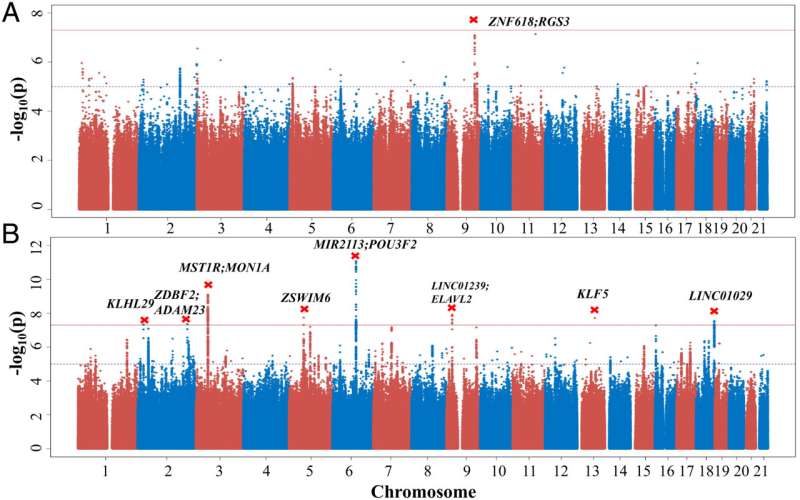
A new study led by the National University of Singapore (NUS) Business School has identified the locations of nine significant genetic markers associated with leadership. For the first time, this allows researchers to examine the genetic correlations between holding a leadership position and one’s physical and mental health and well-being, shedding new light on occupational health.
“Our research continues the investigation on the biological mechanisms of leadership,” said Associate Professor Song Zhaoli from the Department of Management & Organisation, who led the study. “Since the late 1980s, studies on twins have shown that differences in people’s genetic make-up account for 30% of differences in whether they hold leadership roles. Now we have gone a step further in using the whole genome to identify the genetic variants more commonly found in leaders and their connection to the leaders’ well-being.”
Another co-author of the paper, Assistant Professor Fan Qiao from the Centre for Quantitative Medicine at Duke-NUS Medical School said, “Genomic studies have recently become one of the most important methods in biomedicine, which has led to exciting findings and implications in medicine and healthcare. Our study bridges the human genome, occupation, and well-being. The findings reveal the biological basis of leadership and suggest an underlying link between occupational achievement and well-being.”
Leadership and health
The study sheds light on whether being a leader is good for one’s health.
The researchers found positive genetic correlations between leadership position and better well-being and health indicators, including high levels of subjective well-being, low levels of anxiety, and depression.
Assoc Prof Song said, “Being a leader means having more resources, such as a higher sense of control and a higher salary, that usually are associated with better well-being. Thus, we generally will observe that leaders tend to have a better well-being than non-leaders. However, leaders tend to also experience greater work pressure and chronic stress typically associated with diseases.”
One notable finding is that the top genetic variant associated with leadership is also associated with an increased risk of bipolar disorder. “Other studies have reported that those holding leadership positions are more likely to have bipolar disorder, while we are the first to find the genetic evidence of such a relationship,” said Assoc Prof Song. “Genetic analysis also indicates associations between leadership position and lower well-being, such as higher body mass index and shortened longevity, after controlling the effect of income. Leading a team is a demanding and stressful job, which has some negative health influences. Using genome studies, we can put aside the health effects that a high income brings and uncover leadership’s hidden side effects on health.”
The team included researchers from Duke-NUS Medical School and the Chinese University of Hong Kong. The study was published in the journal Proceedings of the National Academy of Sciences (PNAS) on 14 March.
Using data from the United Kingdom (UK) Biobank, the largest public genetic and health database globally, and other cohorts in the US, researchers extracted genetic and occupational information of more than 280,000 individuals of European ancestry. They also tapped on the UK Standard Occupation Classification and the United States Occupational Information Network for information related to leadership roles and demands.
The authors do not think that genes determine everything. “On the one hand, it seems difficult to claim that there is ‘the leadership gene(s)’ because leadership is a very complex phenomenon that may be affected by tens of thousands of genes, each of which has a very small effect. On the other hand, environmental influences such as family and organizational contexts may mediate or moderate the effects of genes. Both nature and nurture matter for leadership,” said Assoc Prof Song.
Occupation matters a lot to one’s well-being. As this research shows, being a leader is a double-edged sword to one’s health. Those in top positions have to be even more conscientious in maintaining a healthy lifestyle.
Source: Read Full Article